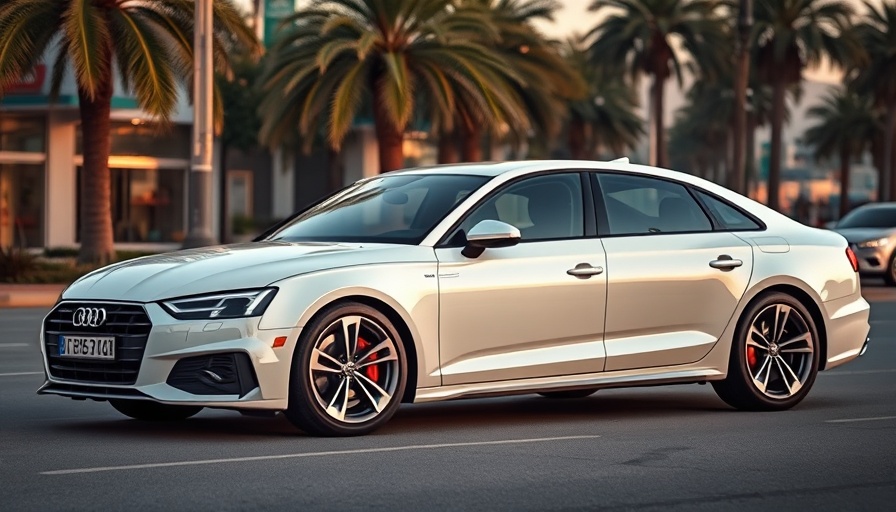
Porsche's Potential Shift: A Response to Tariffs
In a strategic move spurred by new White House policies and potential tariffs on imported vehicles, Volkswagen Group is reportedly exploring the possibility of moving some of its luxury vehicle production to the United States. Tariffs on pricey imports like Porsches and Audis could have profound implications, and automakers are responding by considering adjustments to their manufacturing locations.
The Electric Future: Audi's Plans in America
Volkswagen’s possible embrace of U.S. production opens up exciting opportunities for the American automotive market. Reports suggest that the forthcoming Scout Motors plant in South Carolina could be repurposed for Audi's manufacturing. This plant is set to focus on electric vehicles, featuring the Traveler SUV and Terra pickup. If Audi shifts its E-Tron production stateside, it would mark a significant step towards sustainable manufacturing while catering to the growing demand for electric vehicles in the U.S.
Current Production Landscape
At present, no Porsches or Audis are manufactured in the United States, highlighting the shift this change would represent. Currently, Volkswagen's Tennessee plant produces the Atlas and ID.4, and it could potentially be expanded to include Audi and Porsche models such as the Q5 or Macan. This inclination could significantly alter the automotive landscape, affecting everything from supply chains to pricing, especially considering the surging popularity of SUVs.
Implications for Luxury Car Buyers
For dealership principals and general managers, this news could reshape the landscape of luxury vehicle sales in the U.S. Greater availability of locally-made models can translate to competitive pricing strategies, enhanced inventory turnover, and improved customer satisfaction as production closer to home often leads to shorter wait times. For buyers, knowing that their luxury vehicle may carry the 'Made in America' label could become an attractive selling point, especially in a market increasingly leaning towards supporting domestic manufacturing.
Audi's Commitment to Growth
While official comments from Audi remained vague, the company stated that "the U.S. is key to Audi’s success globally,” which underscores the importance of the American market for the brand's operations. The push towards local production reflects a broader trend of globalization in manufacturing where companies aim for sustainable growth through transformation.
Looking Ahead: The Future of Imported Luxury
As discussions around tariffs and local manufacturing continue to evolve, it's clear that changes in production strategies by major automakers like Volkswagen can significantly affect the automotive market landscape. Dealerships should stay alert to these trends, not only to adjust their market strategies but also to meet the shifting demands of consumers who may prioritize domestic over imported vehicles in their purchasing decisions.
 Add Row
Add Row  Add
Add 




Write A Comment